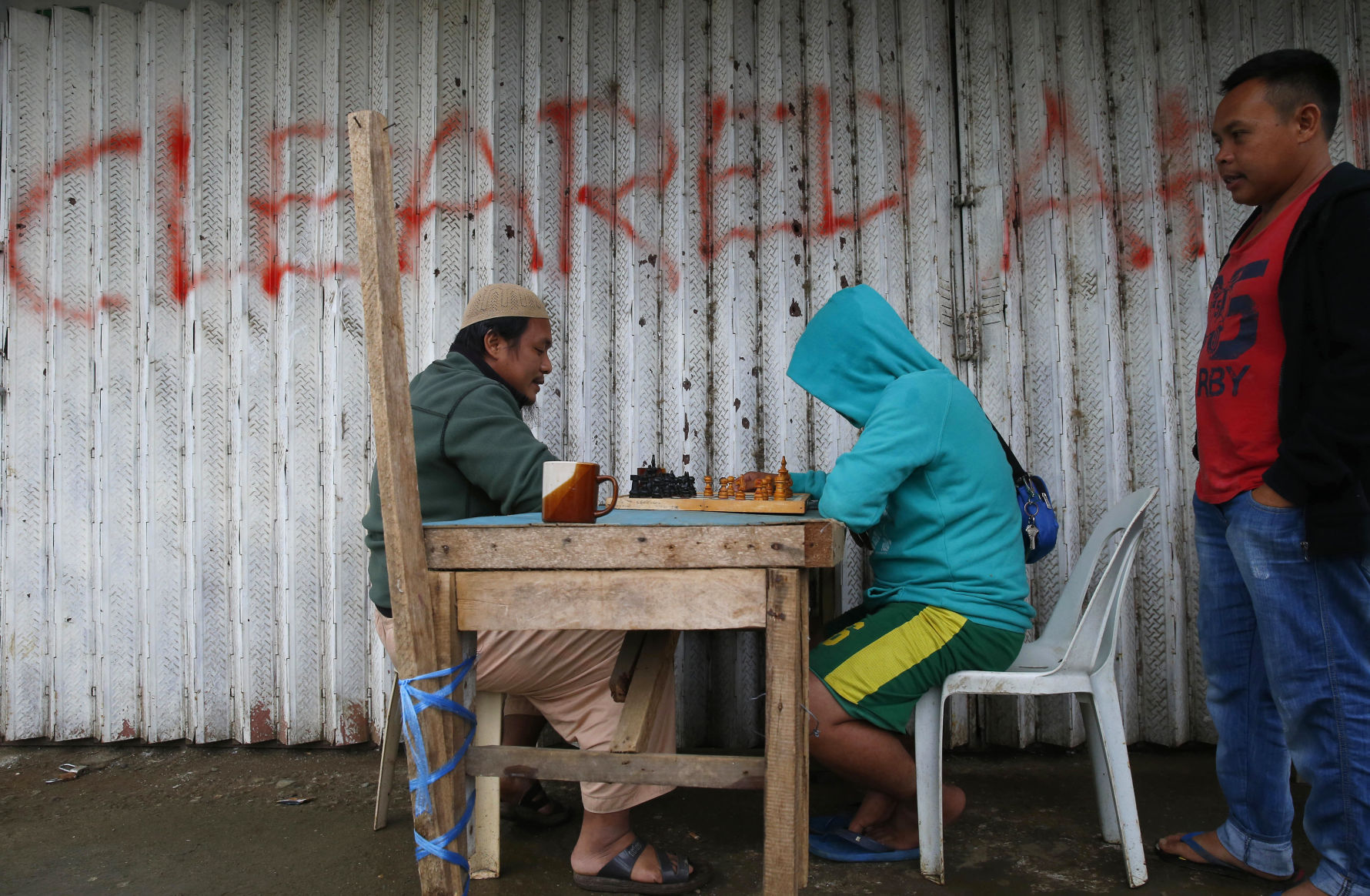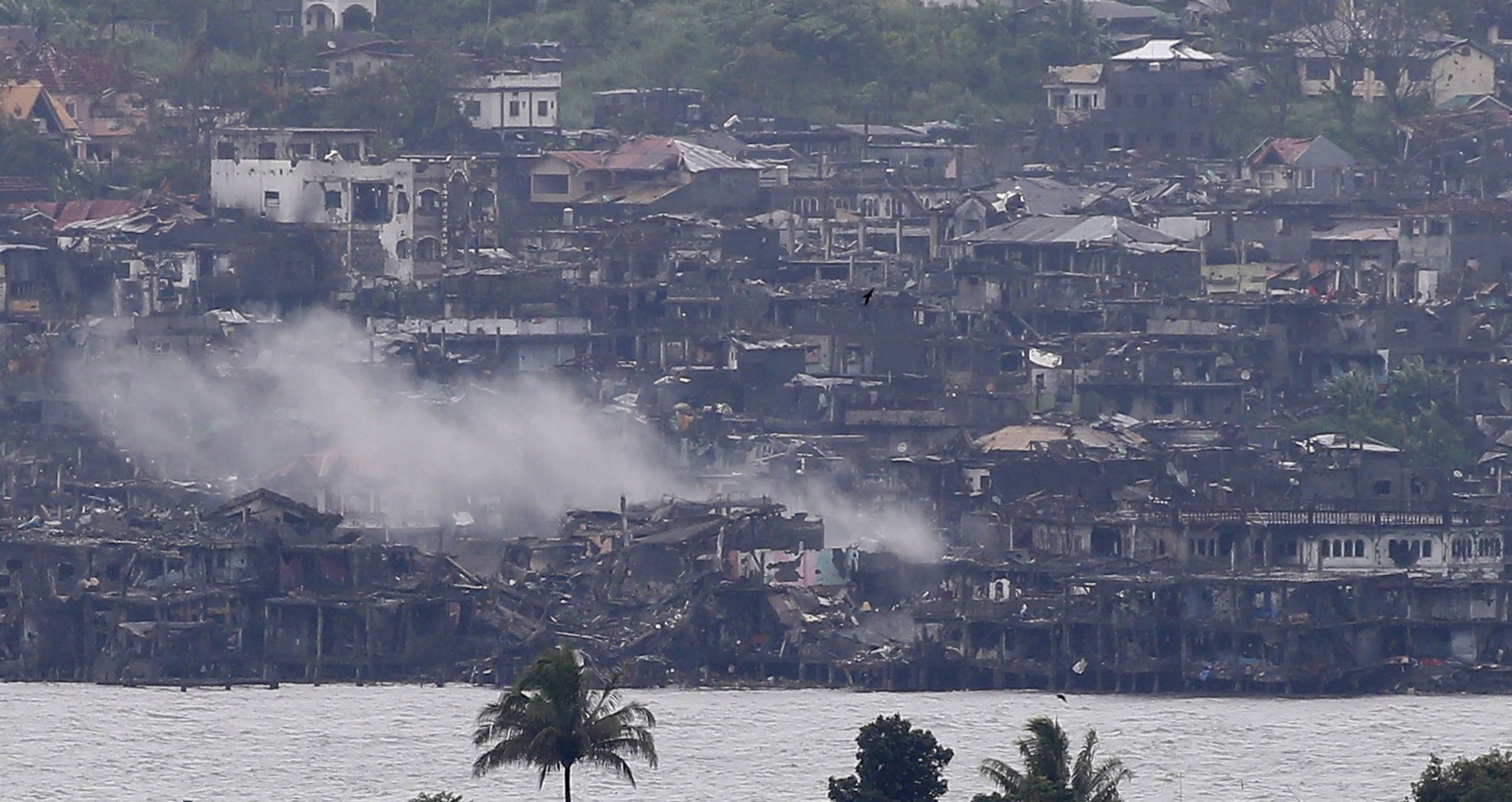MARAWI, Philippines (AP) — Philippine troops killed four Islamic State group-linked militants in a clash and occasional blasts thundered across Marawi on Wednesday after the president declared the southern city liberated from “terrorist influence.” President Rodrigo Duterte visited the battle-scarred
MARAWI, Philippines (AP) — Philippine troops killed four Islamic State group-linked militants in a clash and occasional blasts thundered across Marawi on Wednesday after the president declared the southern city liberated from “terrorist influence.”
President Rodrigo Duterte visited the battle-scarred Islamic city on Tuesday and announced its liberation, sparking hopes that hundreds of thousands of residents could finally return home after being displaced for nearly five months by a bloody siege.
But as life and some traffic resumed in Marawi’s outskirts, the sounds of fighting rattled some who returned.
“We still hear explosions,” Sohayla Pacalna, a souvenir shop owner, told The Associated Press. “But we don’t know what they are.”
After Duterte’s speech, troops pressed an offensive late Tuesday against 20 to 30 gunmen holding several hostages in buildings near the city’s Lanao Lake and killed four militants, Col. Romeo Brawner said, adding that 10 soldiers were wounded.
He said 854 militants have now been killed in the fighting, which broke out on May 23, along with 163 soldiers and policemen and 47 civilians.
Occasional bursts of gunfire and explosions sent clouds of smoke rising from the one-hectare (2.5-acre) area where soldiers said the remaining militants were hiding. The hilly community of narrow streets is now a gray wasteland of disfigured buildings and ruined houses.
Troops used megaphones to urge the remaining militants to give up.
“The only way to get out alive is to surrender,” military chief of staff Gen. Eduardo Ano said.
Marawi, a mosque-studded center of Islamic faith in the predominantly Roman Catholic Philippines, has been devastated by the siege by the militants, who waved IS-style black flags and hung them on buildings they occupied in Marawi’s business district and outlying areas, according to the military.
The insurrection prompted the military to launch a ground offensive and airstrikes, with the United States and Australia later backing the troops by deploying surveillance aircraft. Duterte declared martial law across the south, the homeland of minority Filipinos and the scene of decades-old Muslim separatist rebellions, to deal with the uprising and prevent other insurgents from waging attacks elsewhere and reinforcing the fighters in Marawi.
The surprise occupation of the city and the involvement of foreign fighters set off alarms in Southeast Asia and the West. Analysts said parts of the southern Philippines were at risk of becoming a new base for IS as it lost territory to international forces in Iraq and Syria.
Defense officials announced Monday that two of the last leaders of the siege — Isnilon Hapilon, who is one of the FBI’s most-wanted terror suspects, and Omarkhayam Maute — were killed in a gunbattle.
A top Malaysian militant, Mahmud bin Ahmad, who uses the nom de guerre Abu Handzalah and is a close associate of Hapilon, has not been found and is among the remaining militants being hunted by troops.
The killings of the two sparked hopes among hundreds of thousands of displaced residents that they could now leave the squalor of overcrowded evacuation camps and return to Marawi. Many were uncertain, though, whether they had homes to return to and how they could rebuild their lives.
It may take more than three years to rebuild Marawi’s ruined commercial and residential neighborhoods, officials said, and it remains unclear how the massive construction cost can be financed.




